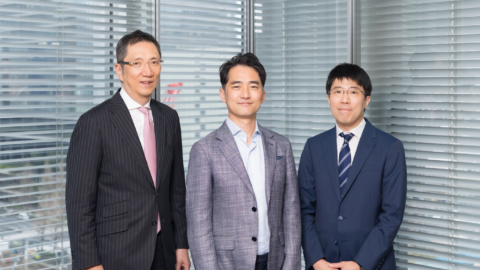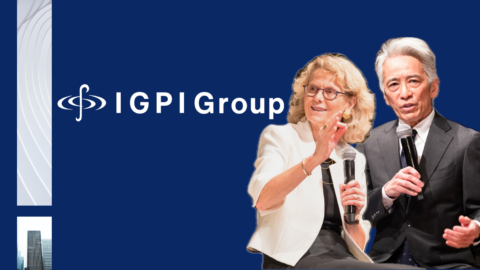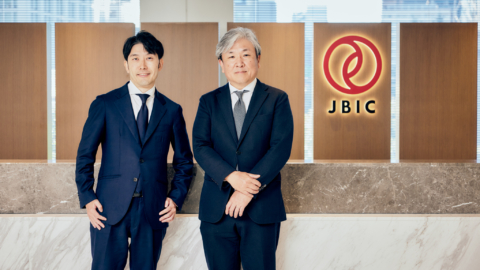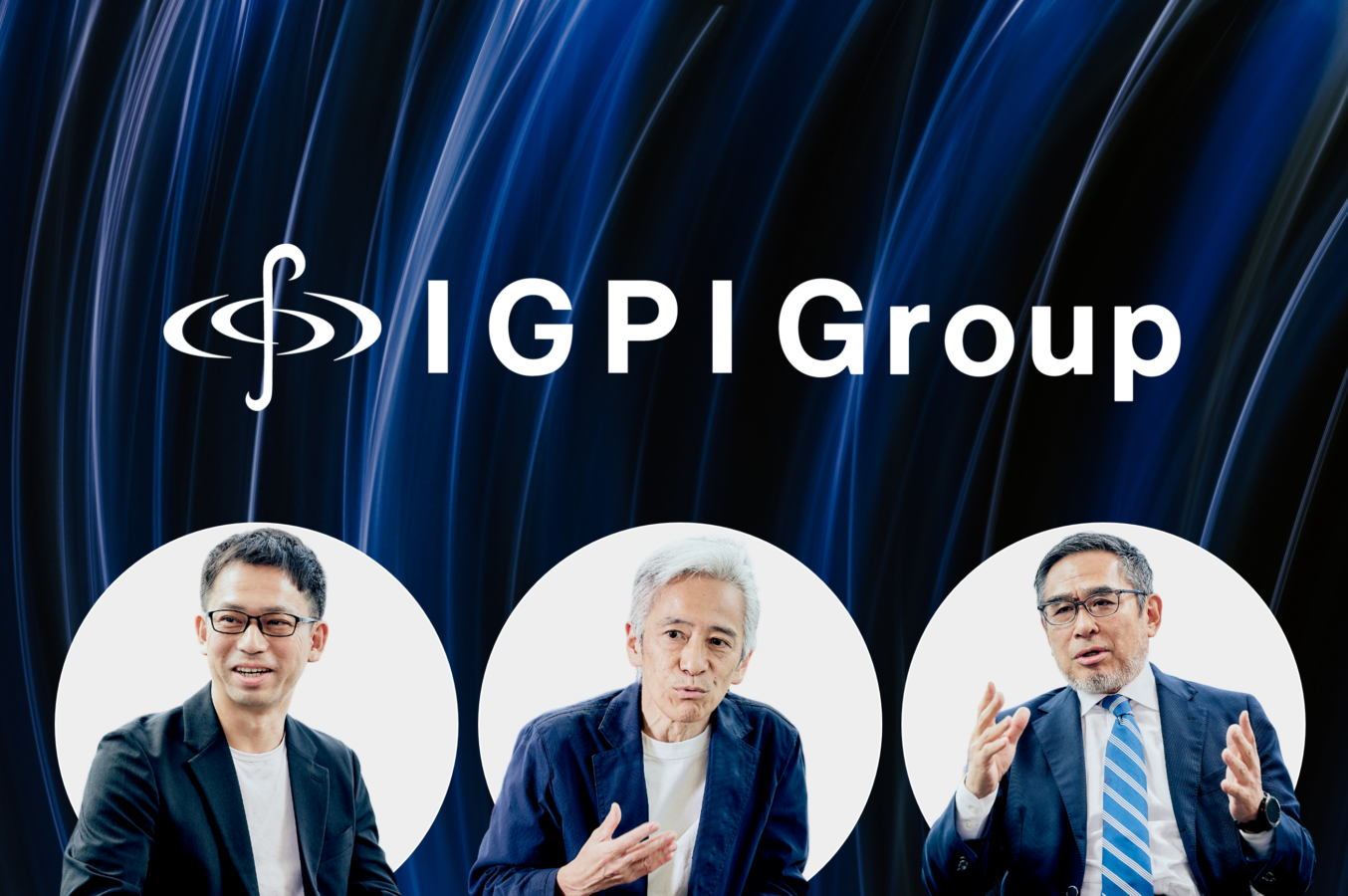
What Has IGPI Group Worked Towards? – The Thoughts Behind “Our Three Commitments”
On October 1, 2024, IGPI Group transitioned to a holding company structure and formulated “Our Three Commitments,” which will be upheld by all group companies both internally and externally. Takashi Muraoka, Jun Matsumoto, and Kohki Sakata, Partners of IGPI Group, discussed the core values they have cherished throughout their activities and how these values culminate in “Our Three Commitments.”
The Core Values Embedded and Practiced Since the Establishment
Takashi Muraoka The transition to a holding company structure on October 1, 2024, was intended to accelerate the group’s speed in exploring new business opportunities and to further enhance the independence of each subsidiary, improving the quality and speed of decision-making. Our group now has approximately 8,500 employees globally. To strengthen our sense of unity and cohesion, and to communicate our philosophy more clearly to external audiences, we redefined our group’s philosophy.
Kohki Sakata IGPI Group is engaged in a diverse range of businesses, making it challenging to succinctly describe our organization. Japan is a relatively homogeneous society in terms of culture, values, and lifestyle, so when we explain that we are engaged in consulting or operate a bus business in the Tohoku region, people tend to understand the context. However, this doesn’t translate well overseas, especially in multicultural nations like Singapore, where various ethnicities and cultures interpret the same information in different ways. To address this, I believe it is important to have a set of words that abstractly explain what we as a group stand for, such as “These are the promises our company upholds.”
Takashi Muraoka That’s how we arrived at “Our Three Commitments”: Authentic: Relentless pursuit of positive social impact, Transformational: Continuous enhancement of realism and innovation, and Integrity: Consistently embodying sincerity. These are not newly conceived ideas but rather concepts that naturally emerged from our 17 years of experience. Whether it’s consulting, majority investment and business management, or incubation—whether in Japan or abroad—the long-term relationships we build with clients and society make these three commitments essential. It applies equally to all projects, from corporate revitalization projects in Japan to cross-border transactions overseas.
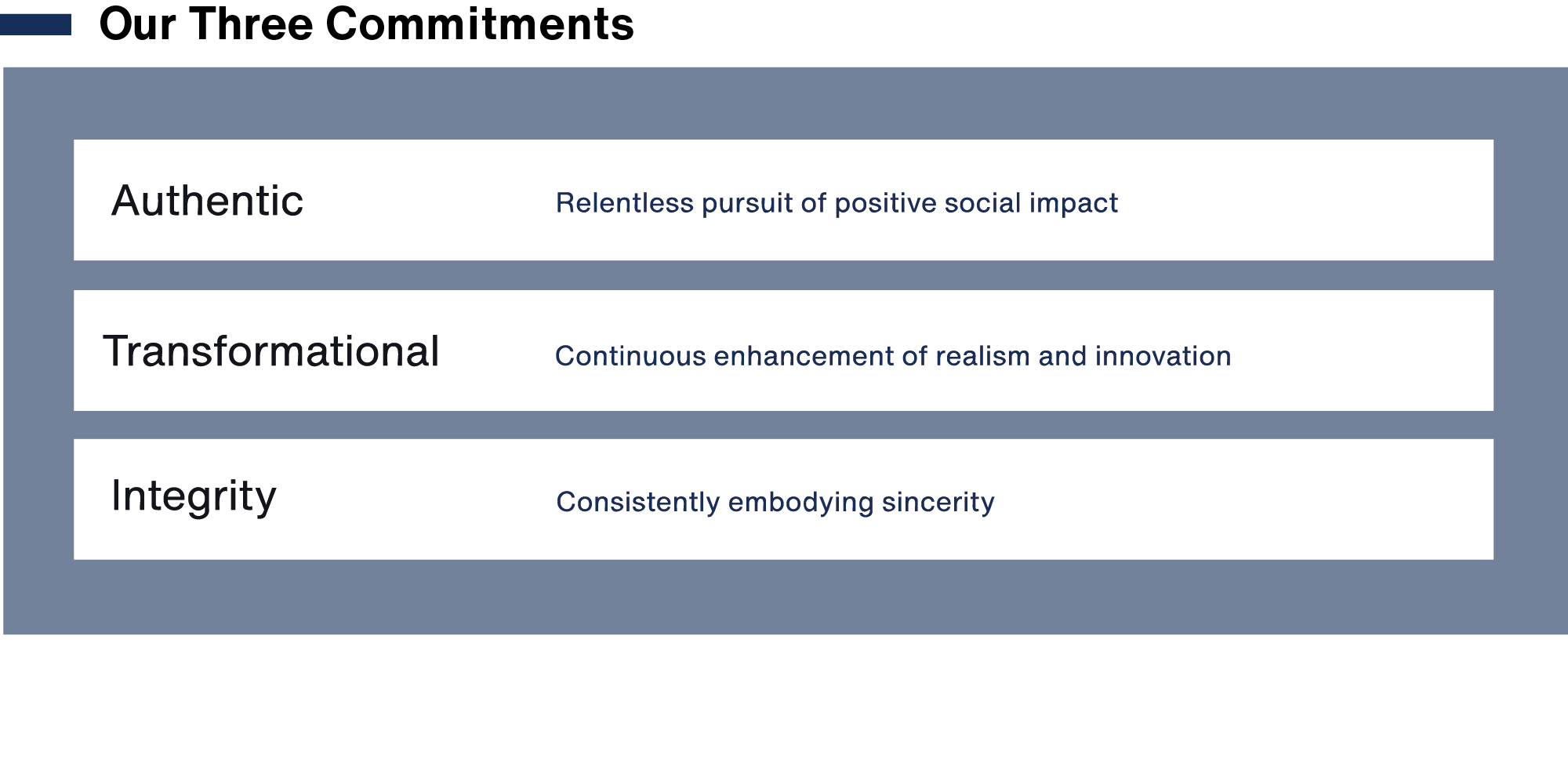
Kohki Sakata I participated in discussions from the early stages of deciding whether to establish “Our Three Commitments.” As you mentioned, rather than thinking about what we want to become, it felt like we were abstracting the essence of our decisions in projects and investments, as well as the actions we take daily. There are moments when our company and personal values are put to the test, and we reflected on these moments as we articulated the commitments. We also worked with our overseas teams to ensure that the English phrasing would resonate globally.
Jun Matsumoto I see Authentic as the highest-ranking concept among “Our Three Commitments.” As the social environment changes, we must continue transforming ourselves, which aligns with the Transformational aspect, to genuinely pursue positive social impact. However, without Integrity, neither companies, organizations, nor individuals can achieve true social impact. This concept is universal, and especially important because, despite differences in religion or beliefs, we need to connect through sincerity as humans—otherwise, misunderstandings will occur.
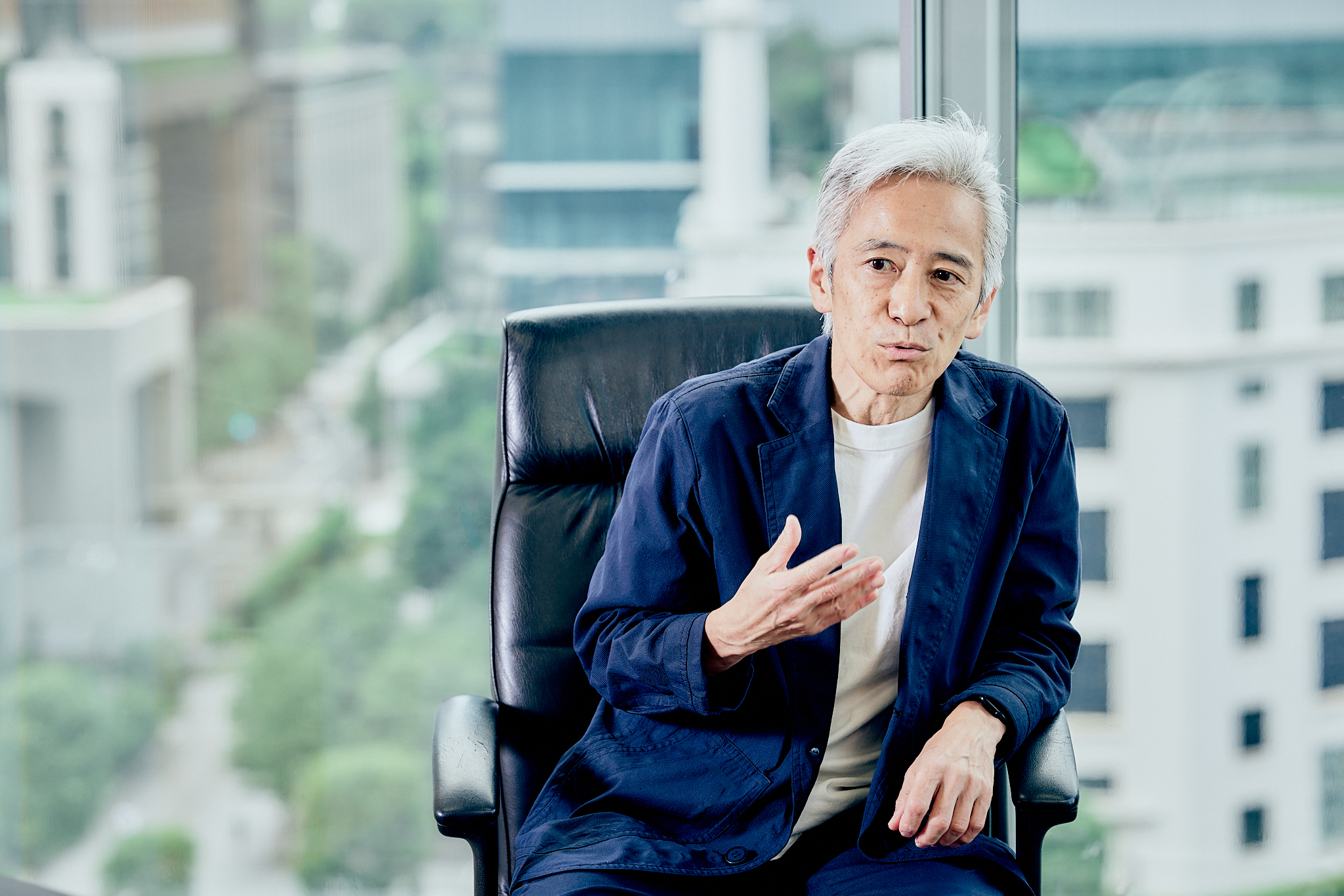
Values Tested in Unprecedented Crises
Jun Matsumoto In my work with business revitalization at IGPI, a fundamental step is always the redefinition of a business’s purpose of the business in time of crisis, or what we now refer to as its Authentic value. This is necessary because companies facing distress often lose sight of their mission and the positive social impact they should be delivering. We redefine this purpose, share it with the management and employees, and then start anew. This approach enables the company to deliver social impact once again, generate appropriate profits, and recover.
Takashi Muraoka This resonates with my experience as well. Conversely, organizations that have clearly defined and internalized their Authentic social value tend to withstand changes in the environment and are easier to revitalize. Companies lacking such Authentic value are harder to revive.
The same applies to incubation: I always ask startups how they define their positive social impact.
Companies that clearly define and articulate their Authentic value gain empathy and support from those around them, allowing them to grow.
Jun Matsumoto The key difference is that in business revitalization, we redefine how a company delivers Authentic social value, while startups define it from the beginning. That’s the only distinction—the else is largely the same. Having been involved in the transportation infrastructure sector for over a decade, I can look back and see how I’ve embodied “Our Three Commitments” in my work.
Transporting people safely, regardless of their purpose, delivers Authentic social value. For instance, during the Great East Japan Earthquake, we dispatched numerous buses to evacuate residents near the Fukushima nuclear power plant. While we didn’t explicitly focus on social value at the time, the decisions we made were undoubtedly grounded in those values.
Takashi Muraoka Looking across the entire IGPI Group, we see a growing proportion of projects centered on public interest. From managing public transportation, as exemplified by Michinori Group, to collaborating with many universities through Advanced Technology Acceleration Corporation (ATAC), we are deeply involved in work that benefits the public. Additionally, our overseas venture capital activities in collaboration with Japan Bank for International Cooperation (JBIC) are not just profit-driven; given that we are utilizing national wealth, these projects must also align with Japan’s national interests.
Balancing Authentic social value with the need for corporate profitability can sometimes create conflicting situations. Natural disasters, for example, are unavoidable, and the responsibility they bring is one we must carry indefinitely. Matsumoto-san, how did you manage the balance between Authentic social value and business profit during your response to the earthquake?
Jun Matsumoto In such an unprecedented situation, as the leader of Michinori Group, I had prepared myself for the possibility that continuity in business operations might not be feasible. When we dispatched buses for evacuation from the nuclear plant, our priority wasn’t economic return—it was restoring the region’s industries and people’s livelihoods. Perhaps, deep down, we were searching for a ray of hope. In the end, we received compensation, and it became clear to me that when you do everything possible for society, a rightful return follows. That experience became a lever that helped Michinori Group recover—it was truly a rare experience.
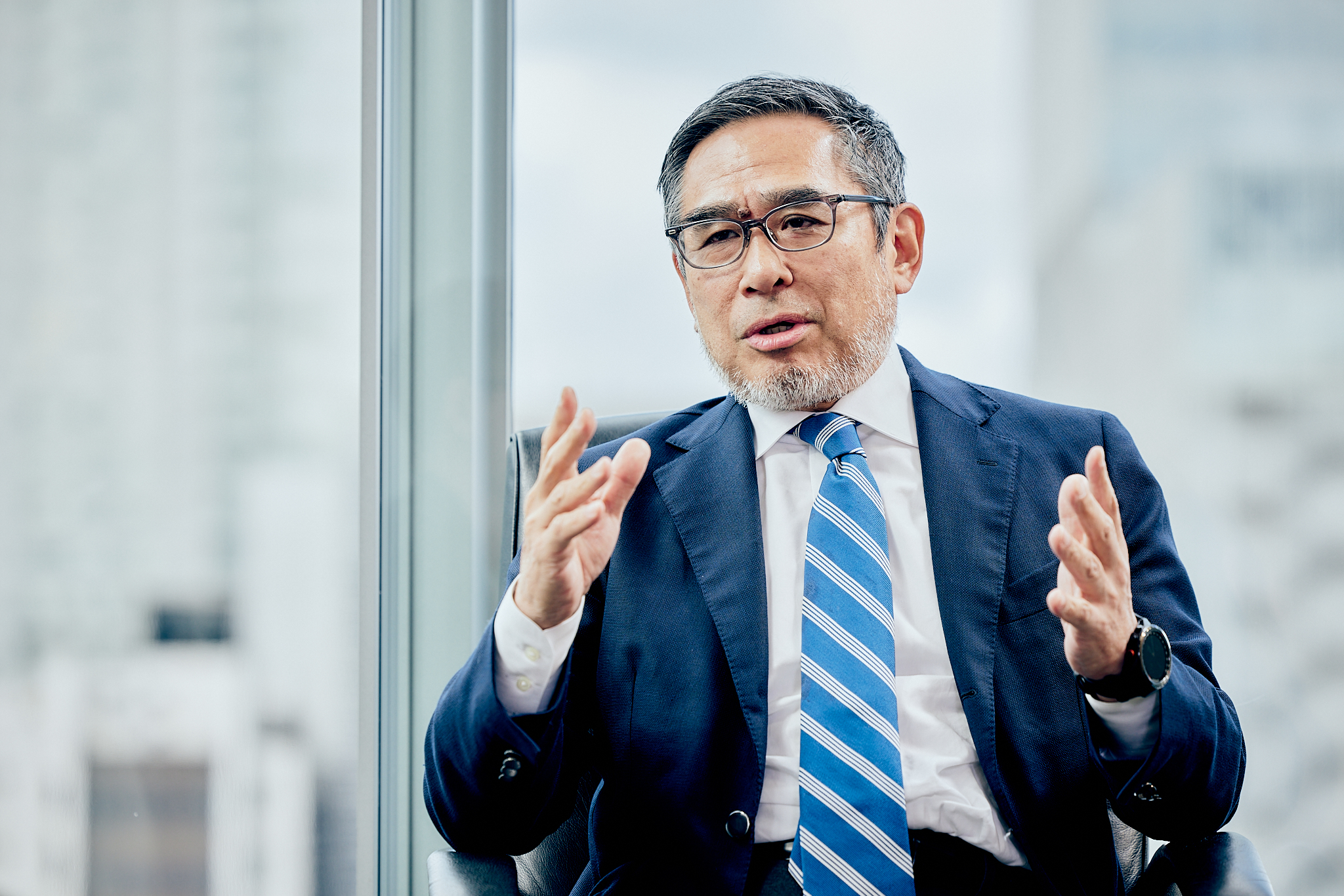
Global Projects that Directly Contribute to Social Value
Takashi Muraoka One of IGPI Group’s key characteristics is our hands-on business model, whether in consulting or investment, where we engage with clients on the ground to co-create value. The real challenge lies in whether we can take our management philosophy and translate it into action on-site. At IGPI, those who bring value on-site voluntarily step forward, often relocate to rural areas or overseas, and commit to projects for 10 or 20 years. The organization is structured to fully support such initiatives. This entire approach reflects how we fulfill “Our Three Commitments.”
Kohki Sakata I’m currently based in Singapore, working across neighboring countries. In Southeast Asia and India, where social issues like air pollution, traffic congestion, and food safety are prevalent, social problems inevitably become the focus of our projects. For example, if we can solve the problem of roughly 70% of trucks running without full loads or empty, we could reduce traffic congestion and, as a result, contribute to decarbonization. These regions operate on a more urgent timeline than Japan, and to truly pursue Authentic social value, Integrity and reliability are indispensable in everything we do.
In one Southeast Asian project, stakeholders questioned whether a proposed solution was truly in the client’s best interest. At IGPI, we always ask ourselves if our approach is Authentic and aligned with the client’s circumstances. As we often wear multiple hats—advisors, investors, and managers—having the flexibility to adapt is critical.
There are projects aimed at disrupting vested interests through digital technology, where the Transformational aspect of “Our Three Commitments” comes to the forefront. In my case, I feel that being in the emerging markets environment challenges me to engage deeply with “Our Three Commitments.”
Jun Matsumoto It’s striking how social impact now influences corporate value and how capital markets are responding directly to social sustainability. It feels like the world has finally caught up to this concept. Michinori Group is also expanding its business in Vietnam. In emerging markets, managing public transportation infrastructure with a high degree of public interest creates a tangible sense of contributing to social systems. It’s both rewarding from a business perspective and deeply aligned with “Our Three Commitments.”
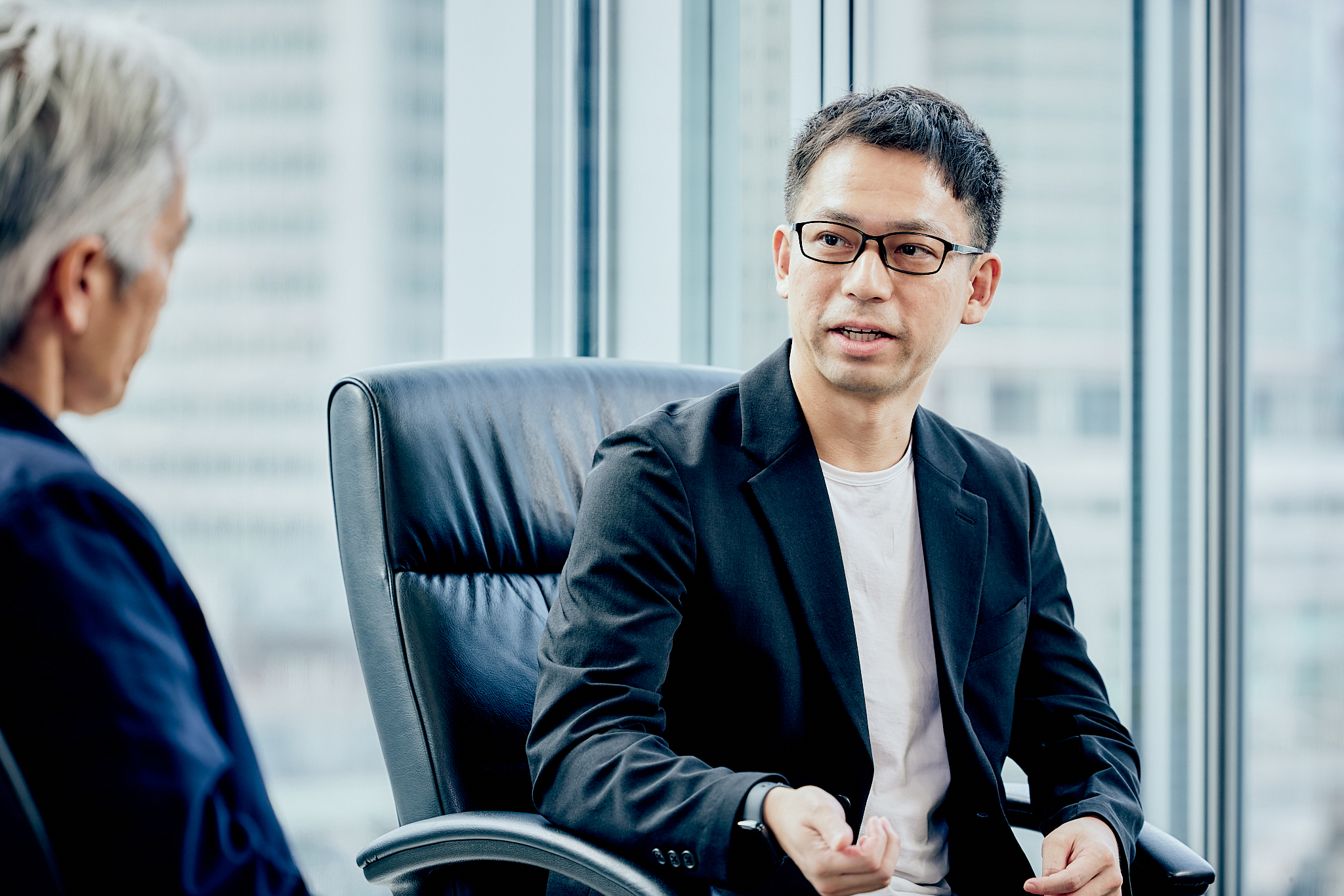
Transformational Adaptation to Solve Problems
Takashi Muraoka The business expansion in Vietnam is remarkable, and I hope to scale such examples. While IGPI Group has continuously launched new businesses, but we haven’t consciously focused on transformation. Instead, As social issues and client challenges evolve, we naturally adapt alongside them. Solutions are constantly evolving. We adopt digital technology and AI not for their own sake, but because they are necessary tools for solving problems at hand. While our core businesses currently center around consulting, majority investment and business management, and incubation. However, I believe we could expand into a fourth or fifth pillar as we grow both geographically and across industries.
Kohki Sakata I believe our strength lies not in being strategy-driven, but rather in being vision-driven and capability-driven, which allows us to adapt flexibly to changing environments. For example, while working in Southeast Asia, the topic of non-performing loans in Vietnam emerged. We responded by establishing a local presence there, building relationships, and soon began receiving inquiries from private companies. Similarly in Australia, after we established a base, we were approached to provide consultations on local innovations and challenges facing universities. By leveraging the capabilities we already possessed, we found we could address many of these challenges. When we encountered gaps in our expertise, we would collaborate with others or develop new skills. While the applications may diversify, the framework remains the same, and we’re simply focus on enhancing our capabilities.
Jun Matsumoto IGPI Group’s partners are a talented collective of professionals, capable of preserving what needs to be maintained while simultaneously driving change and innovation. However, achieving ambidextrous management—balancing both exploration and exploitation—is no easy task. At Michinori Group, we’ve integrated several mid-sized companies, pooling cash flows, knowledge, and opportunities for change. Additionally, we’ve established an R&D organization at the holding company focused on exploration, which has produced services like EMS (Energy Management System) for electric buses, autonomous driving, and dynamic routing technologies. Building such organizational structures consciously is effective across many industries.
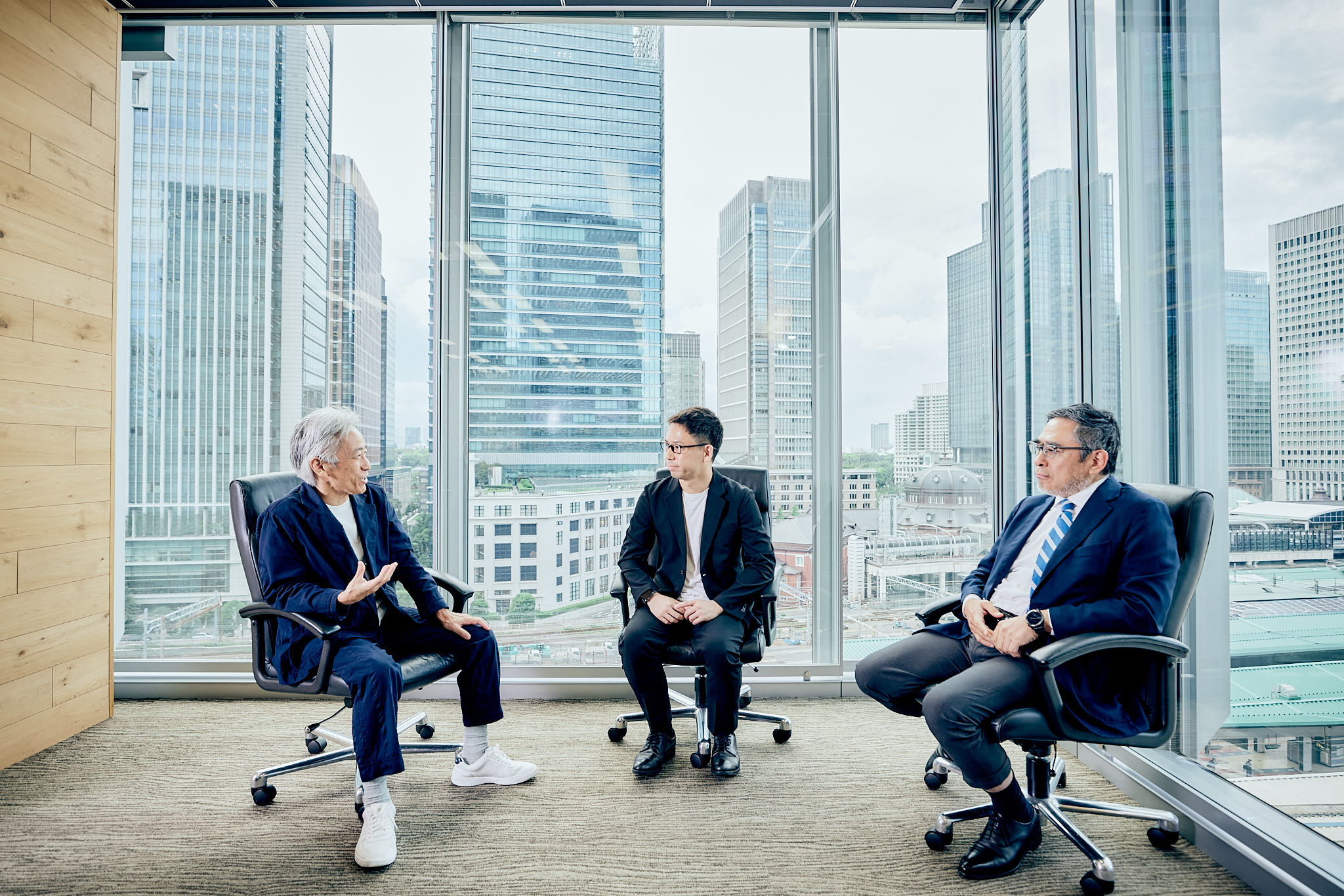
Becoming a Unique Presence in the World
Takashi Muraoka Listening to the two of you, I am reminded once again that being attuned to the fundamental aspects of social issues is the key starting point. In Asia, developing countries, and depopulated areas, we have continually faced various challenges head-on. I believe we are a group that thrives on confronting these issues. When we do, the tools and methodologies to solve them naturally emerge. We don’t need to create everything ourselves; rather, it’s about leveraging the best available resources.
Kohki Sakata Expanding what we’ve developed in Japan globally is part of our vision. Moving forward, we intend to remain committed to “Our Three Commitments” while shaping our business. We aim to build a firm where local members can also take on leadership roles.
Jun Matsumoto Continuously evolving while sincerely pursuing Authentic social value—this is something only a true professional collective with a craftsmanship mindset can achieve. As IGPI Group, we are a genuine collective of professionals, and we will fulfill “Our Three Commitments” together. It is particularly important that the partners lead by example.
Takashi Muraoka I’ve always been determined to ensure that IGPI does not becomes an ordinary group. Each group company within the group should aim for uniqueness in its respective field, building trust, co-creating with others, and realizing exceptional value. At the same time, as a collective, we should remain a strong sense of cohesion, with each company being recognized for embodying the distinctive qualities of IGPI. We’ve raised our profile domestically, and now, let’s work toward having IGPI recognized globally for its uniqueness.
